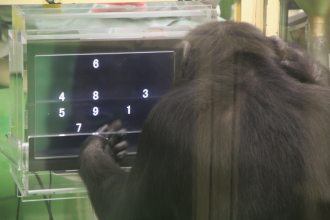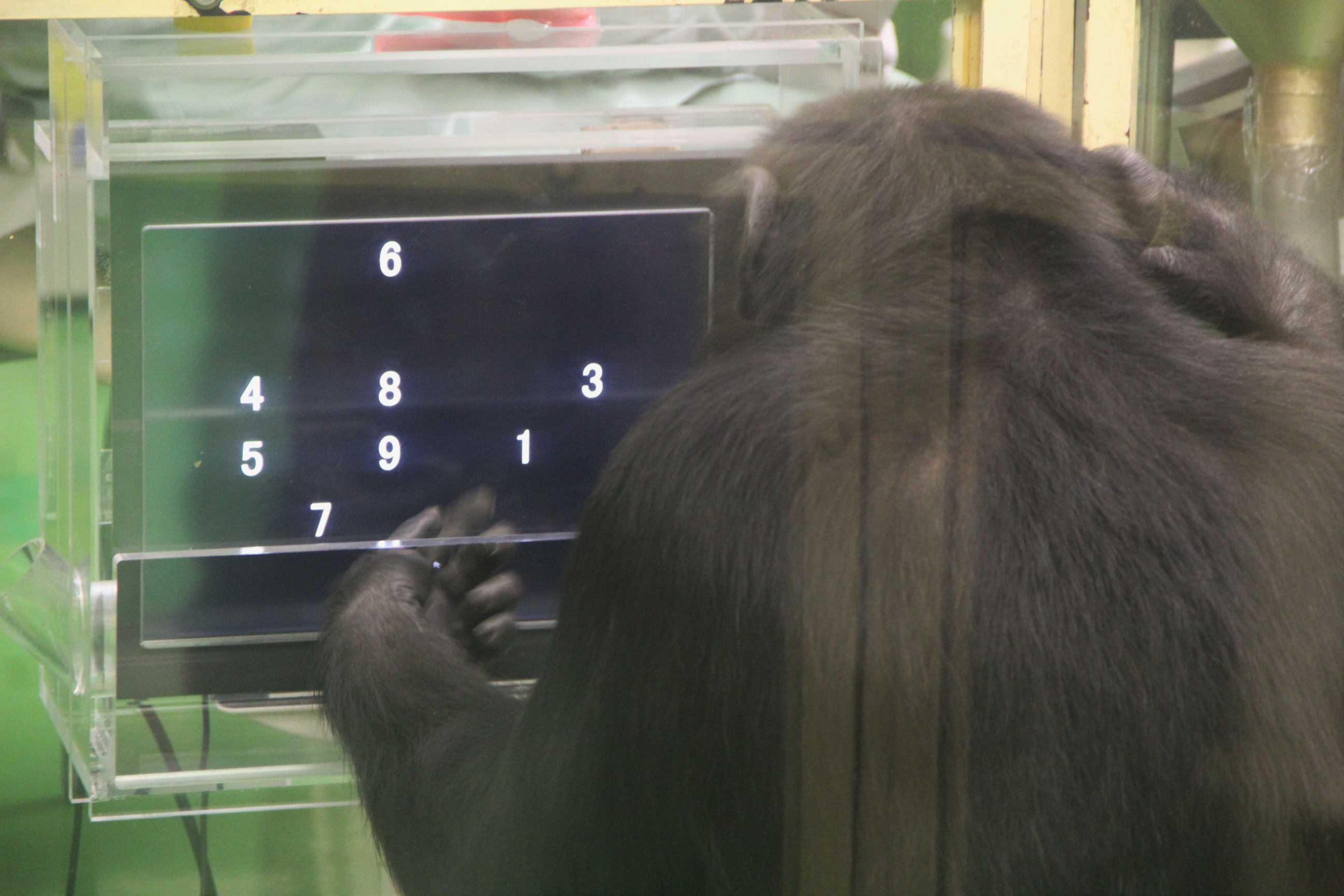Media release
From:
Peer-reviewed Experimental study Animals/Chimpanzees
Chimpanzees perform better on challenging computer tasks when they have an audience
When people have an audience watching them, it can change their performance for better or worse. Now, researchers reporting in the Cell Press journal iScience on November 8 have found that chimpanzees’ performance on computer tasks is influenced by the number of people watching them. The findings suggest that this “audience effect” predates the development of reputation-based human societies, the researchers say.
“It was very surprising to find that chimpanzees are affected in their task performance by audience members, and by human audience members nonetheless!” says Christen Lin of Kyoto University in Japan. “One might not expect a chimp to particularly care if another species is watching them perform a task, but the fact that they seem to be affected by human audiences even depending on the difficulty of the task suggests that this relationship is more complex than we would have initially expected.”
The researchers, including Shinya Yamamoto and Akiho Muramatsu, wanted to find out if the audience effect, often attributed in humans to reputation management, might also exist in a non-human primate. People, they knew, pay attention to who is watching them, sometimes even subconsciously, in ways that affect their performance. While chimps live in hierarchical societies, it wasn’t clear to what extent they, too, might be influenced by those watching them.
“Our study site is special in that chimpanzees frequently interact with and even enjoy the company of humans here, participating almost daily in various touch screen experiments for food rewards,” Muramatsu says. “As such, we saw the opportunity to not only explore potential similarities in audience-related effects but also to do so in the context of chimps that share unique bonds with humans.”
The researchers made the discovery after analyzing thousands of sessions in which chimpanzees completed a touch screen task over six years. They found in three different number-based tasks that chimpanzees performed better on the most difficult task as the number of experimenters watching them increased. In contrast, they also found that, for the easiest task, chimpanzees performed worse when being watched by more experimenters or other familiar people.
The researchers note that it remains unclear what specific mechanisms underlie these audience-related effects, even for humans. They suggest that further study in non-human apes may offer more insight into how this trait evolved and why it developed.
“Our findings suggest that how much humans care about witnesses and audience members may not be quite so specific to our species,” Yamamoto says. “These characteristics are a core part of how our societies are largely based on reputation, and if chimpanzees also pay special attention towards audience members while they perform their tasks, it stands to reason that these audience-based characteristics could have evolved before reputation-based societies emerged in our great ape lineage.”
Multimedia






 International
International



